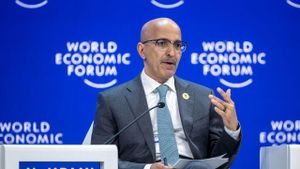The battle for survival intensified on Big Brother Brasil 25 (BBB 25) as the fourth Paredão was formed, featuring contestants Aline Patriarca, Gabriel Yoshimoto, and Vitória Strada. The nomination sparked fierce scrutiny from viewers and participants alike, igniting discussions across social media platforms.
The build-up leading to this pivotal moment was fraught with drama, starting from the tension among housemates as the psychological strategies of various competitors came to the fore. João Gabriel, the leader of the week, made the controversial decision to nominate Aline, who found herself embroiled in heated exchanges with her fellow contestants. The conflict between Aline and João Gabriel not only fueled viewer interest but also raised challenges concerning loyalty and strategy within the house.
Public polls showcased the fluctuated support each nominee garnered, with polls indicating Vitória Strada as the frontrunner for elimination, closely followed by Gabriel. This uncertainty has left viewers speculating and strategizing on social media, highlighting the embedded narrative of viewer influence on the game.
Reported by O GLOBO, the public sentiment was summed up by commenters stating, "A disputa acirrada gera perplexidade sobre quem será eliminado," capturing the palpable tension as votes were cast. Meanwhile, sentiments from social media users expressed frustration, particularly with Gabriel’s gameplay, exemplified by comments like, "Se o Gabriel voltar desse paredão eu desisto desse programa," encapsulating the passionate opinions airing online.
The atmosphere at the house during the nomination process reflected the intensity of reality TV. Aline, upon being nominated, expressed readiness for elimination, and her emotional outbursts during nominations underlined the stakes of their mutual support systems and individual gameplays.
Following the events of the nomination, the Bate-Volta challenge added layers of suspense to the proceedings as Diogo Almeida won the chance to save himself from elimination after being one of the top voters against Aline and the others. Viewers looked on, eager to see how the nominees would maneuver through the challenges posed by public votes.
Polls conducted showed considerable movement, with numbers hovering around 46.55% for Vitória Strada and 46.50% for Gabriel, leading many to predict one of these contestants would soon leave the competition. With only around 6% of the votes reported for Aline during the initial polling phases, her position displays how rapidly perceptions can change, particularly as contestants struggle to navigate the dynamics of the house.
Everyone is aware of how volatile reputations can be made, broken, or saved based on just one public vote. Muscling through the week, discussions within the house and across viewer platforms continued to underpin the drama, with fans backing their prefered players vigorously.
The competition reached new heights as Aline faced her own dilemmas, publicly confronting João Gabriel over his commitment to their alliance during heated discussions. Amid the tensions, Tadeu Schmidt's role as host served as the expected stabilizing influence, as he guided contestants through their fears and anticipations with each vote being counted.
Making matters more complex, the timing of the 'Sincerão,' the live discussion format, proved pivotal for the nominees. This weekly event enables contestants to air grievances and clarify alliances, providing fans insight on issues determining their loyalty. The outcome of these discussions directly influences voting behavior, making it both insightful and unpredictable.
Post-nomination sentiments have been mixed, with Aline and Gabriel expressing their fears of elimination, as viewers shared insights and predictions on just who might survive another week. The high-flying ratings and social media buzz reflect the popularity of the reality show format, where audience engagement plays as much of a role as the individual performances of the contestants within the show.
With tensions running high, the treatment of nominees continues to stimulate lively debates about strategy and favoritism. Observers noted, ‘The elimination decisions reflect broader socio-political dynamics.’ Show viewers began framing their bets on polls, indicating who might evoke the next round of social engagements free from pressures of entertainment but burdened with the consequences of fame.
Looking forward, viewers are eagerly awaiting the live results announcement on February 11, where one contestant will have to bid farewell to the game, bringing the stakes to unprecedented levels. The fans will have their fingers crossed, either leading to cheers or heartaches depending on the outcome.
Clearly, the 4th Paredão of BBB 25 has encapsulated both the political machinations of reality television and the raw emotions of those behind it, making the prospect of elimination not just about the game but the broader narratives it continues to create. Who remains and who goes, as ever, rests with the audience.



